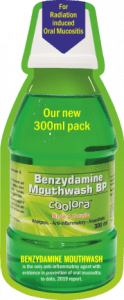Menu

Date: 27th Feb.,2017
Congratulations on the most exciting and special time of your life! You are blessed with a new life and the fabled pregnancy glow. Things are looking up and you are certainly enjoying all the attention. Pregnancy is a busy and wonderful time for all women between taking better care of themselves and reading all the pregnancy books out there.
Although, at a crucial time like this, your gums, mouth, and teeth are probably the last thing on your mind. But, it is important to take proper care of your oral health to avoid detrimental effects to both, yours, and the baby’s health.
Pregnancy doesn’t affect every woman the same way. It is possible that during the nine months of pregnancy, you may not experience any oral discomfort. However, women are prone to the following three conditions during pregnancy:
Pregnancy gingivitis is caused by some of the hormones released during pregnancy and presents itself as inflammation and swelling of gums. It usually develops between the second and eighth months of pregnancy.
Symptoms of pregnancy gingivitis can range from redder gums that bleed while brushing to severe inflammation of gums and bleeding of gum tissue. If left unchecked, gingivitis can progress into a more serious disease called periodontitis.
Women suffering from periodontitis during pregnancy are 3.5-7 times more likely to deliver a preterm baby. Preterm babies face many health problems and experience slow growth, making it vital to follow a strict dental regime.
You can use mouthwashes such as Hexidine to prevent pregnancy gingivitis and toothbrushes like Thermoseal that has ultra-soft bristles to avoid discomfort while suffering from tender gums.
During pregnancy, you are more likely to develop tooth decay. This is because of the higher acidity in your mouth, sugary food cravings and lower attention to oral health. Higher consumption of carbohydrates and morning sickness further decrease the pH of the oral cavity. Low pH increases the risk of dental caries and erosion. Studies also show that children whose mothers have high caries levels are more likely to get caries. This makes brushing, flossing, and rinsing even more important during pregnancy.
Pregnancy tumours occur in about 5% of pregnant women. They are also called pyogenic granuloma, which are skin lesions that grow on gums. These are non-cancerous red-coloured tumours that bleed easily. They are caused due to the hormonal changes in the body combined with excess dental bacteria.
Pregnancy tumours usually appear after the first trimester and resolve on their own after the delivery. However, if you’re concerned about their appearance, or if they do not recede post-delivery, you can have them surgically removed.
Despite oral healthcare being crucial during pregnancy, it is neglected since it isn’t considered to be as important. But, as discussed earlier, if dental care is overlooked, it can be harmful to your health as well as your baby’s. Here are some tips for maintaining good oral health during pregnancy:
Before you start attempting to conceive, ensure that you make a dentist appointment. You should inform him or her that you’re planning to have a baby or how far along you are. This will help the dentist to alter your dental treatments or medication, if needed. He or she can also perform a professional cleaning and examine your gums. This way, any oral problems that you may have can be treated before your pregnancy term.
Chances of contracting gingivitis and caries can be significantly lowered if you maintain proper oral hygiene. Brush your teeth twice a day with a soft-bristled toothbrush and fluoridated toothpaste like Thermoseal. In case you have sensitive teeth, toothpastes like RA Thermoseal can effectively clean your teeth while protecting them against dentinal hypersensitivity.
Brushing alone, however, cannot completely clean your mouth. You must also floss your teeth using a product like Thermoseal Floss at least once a day to remove plaque between your teeth. Complete your oral care routine by rinsing twice a day with an alcohol-free fluoridated mouthrinse like Fluoritop to dislodge any stuck particles and strengthen your teeth.
Calcium is one of the key nutrients that a foetus needs for its development. It is responsible for building strong bones and teeth. If your calcium intake is low, then the foetus will draw calcium from your teeth and bones, causing problems later in life.
Recommended dietary allowance for women over the age of 19 is 1000 mg/day. To meet your baby’s calcium requirements, you can take calcium tablets and eat dairy products, tofu, spinach, and other calcium-rich foods.
Women are prone to morning sickness, vomiting and acid reflux during pregnancy. These conditions can cause tooth erosion and hence, must be dealt with. To reduce the damage, you should immediately rinse your mouth with water to wash away the acid. You can also chew a sugar-free gum, which increases saliva production and reduces acid damage. However, avoid brushing your teeth for at least 30 minutes as your teeth are vulnerable after acid exposure, and brushing will erode the enamel.
Your diet will play a huge role on your oral health as well as the baby’s growth. It’s normal for pregnant women to have sweet cravings but the more you snack, the higher the risk of caries. Include fruits, vegetables, cereals, fish, eggs, beans, nuts, and dairy products in your diet. Avoid candy, soda and other foods with high sugar content.
If you have any doubts about your dental care, any product or medication, consult your dentist and physician. Maintaining good oral hygiene, eating right and periodic dentist appointments will ensure that your baby is healthy while not compromising your oral health.
References:


| PRODUCTS | QTY | PRICE | VALUE in INR |
|---|
| PRODUCTS | QTY | PRICE | VALUE in INR |
|---|